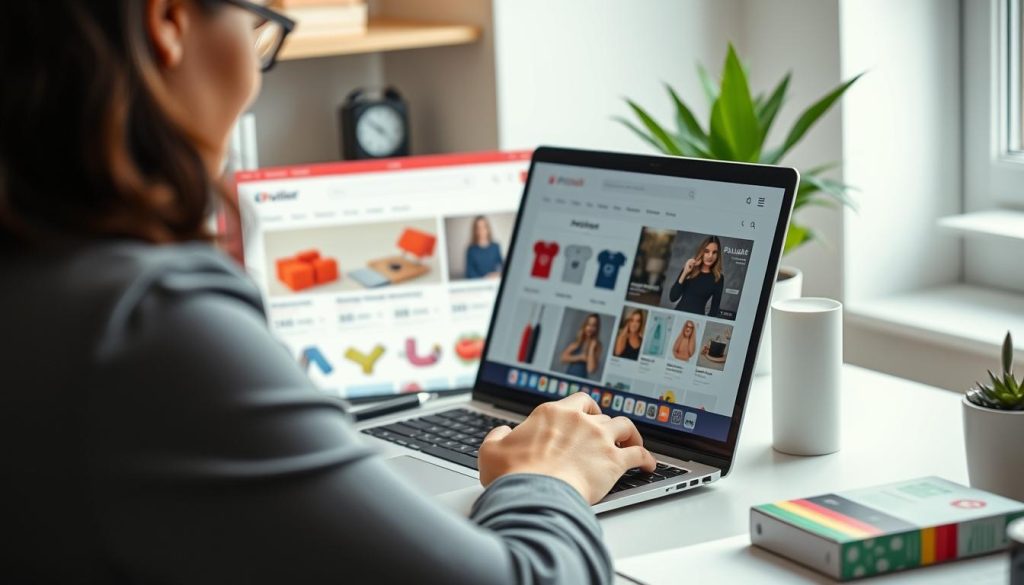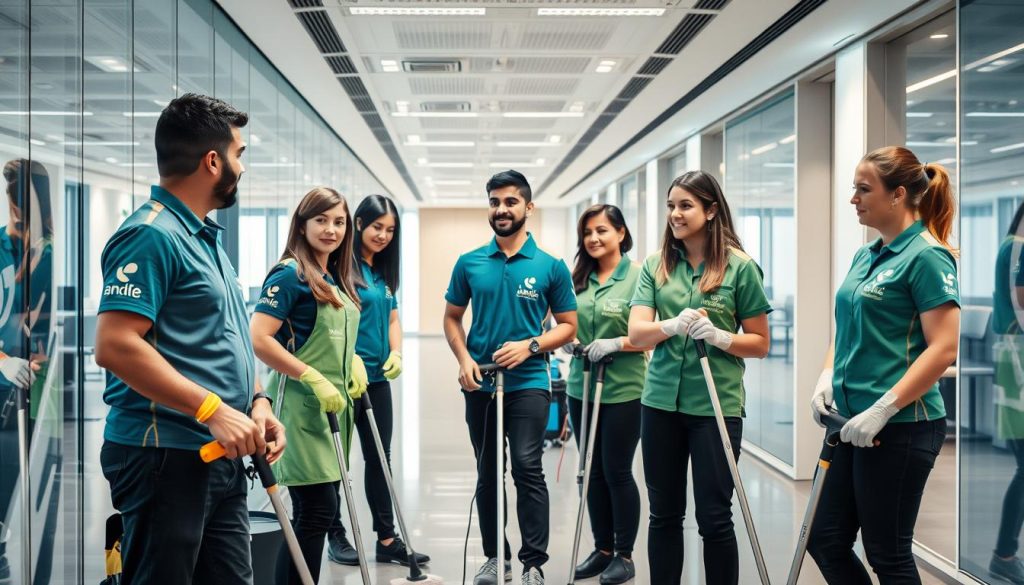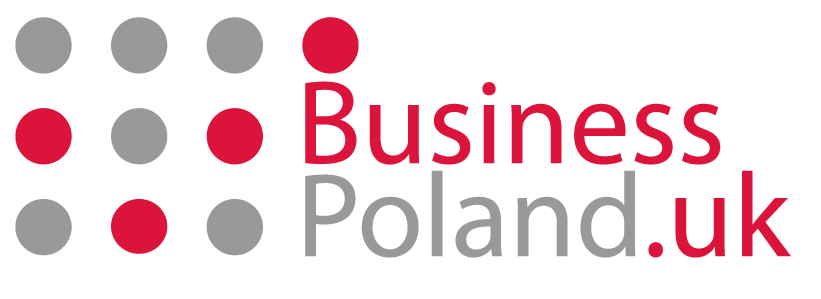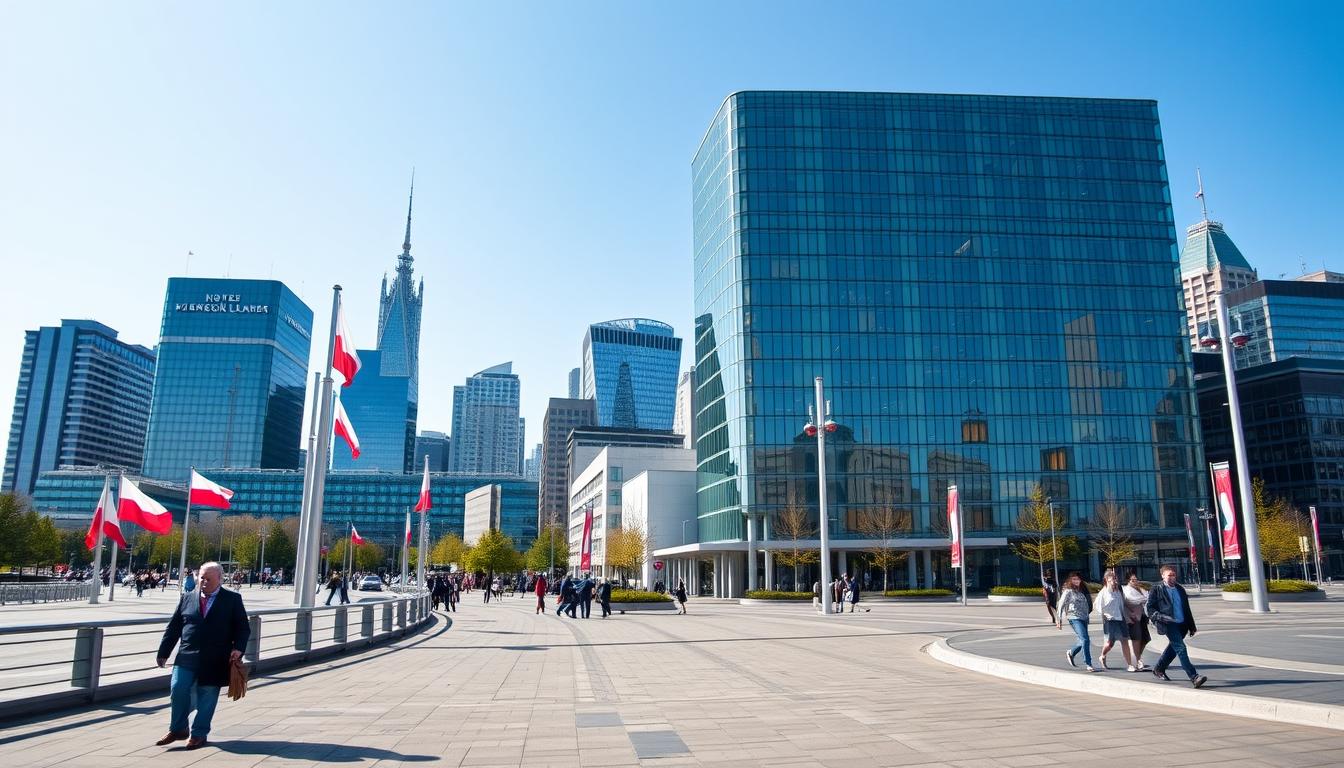Poland’s growing economy, strategic location between Eastern and Western Europe, and business-friendly environment make it an attractive destination for foreign entrepreneurs. With a stable GDP growth rate and increasing support for small businesses, Poland offers numerous opportunities for foreigners looking to establish their entrepreneurial ventures. This comprehensive guide analyzes the top 10 small business ideas in Poland for foreigners, comparing startup costs, revenue potential, ease of setup, and legal requirements to help you make an informed decision.
Quick Comparison: Top 10 Small Business Ideas in Poland for Foreigners
Before diving into the details of each business idea, let’s compare them side by side to help you identify which options might be best suited to your skills, budget, and goals. This comparison table highlights key metrics including startup costs, average monthly revenue potential, ease of setup, and overall popularity among foreign entrepreneurs in Poland.
| Business Idea | Startup Cost (PLN) | Avg. Monthly Revenue (PLN) | Ease of Setup (1-5) | Popularity (1-5) | Language Flexibility |
| E-commerce & Online Retail | 5,000-25,000 | 10,000-50,000 | 4 | 5 | High |
| IT & Digital Services | 3,000-15,000 | 15,000-80,000 | 4 | 5 | High |
| Food & Beverage Business | 30,000-150,000 | 20,000-60,000 | 2 | 4 | Medium |
| Tourism & Hospitality | 20,000-100,000 | 15,000-70,000 | 3 | 4 | Medium |
| Consulting Services | 2,000-10,000 | 10,000-50,000 | 5 | 4 | Medium |
| Language Services | 1,000-5,000 | 8,000-30,000 | 5 | 3 | Very High |
| Cleaning & Maintenance | 5,000-20,000 | 10,000-40,000 | 4 | 3 | High |
| Import/Export Business | 10,000-50,000 | 20,000-100,000 | 3 | 4 | Medium |
| Beauty & Wellness | 15,000-60,000 | 12,000-45,000 | 3 | 3 | Medium |
| Eco-Friendly Products | 8,000-40,000 | 8,000-35,000 | 3 | 3 | High |
Need Help Choosing the Right Business?
Our experts can analyze your skills, budget, and goals to recommend the best business option for you in Poland.
1. E-commerce & Online Retail

Features & Specifications
- Target Audience: Polish consumers, expat communities, and potential EU customers
- Required Certifications: Business registration (CEIDG for sole proprietorship or KRS for LLC), VAT registration for sales over 200,000 PLN
- Language Flexibility: High (can operate in English with translated website)
- Popular Platforms: Allegro (Polish Amazon equivalent), Shopify, WooCommerce, Amazon EU
- Best-Selling Categories: Electronics, fashion, home goods, specialty foods, eco-products
Advantages
- Low physical presence requirements – ideal for foreigners
- Access to entire Polish market (38 million people) and potential EU expansion
- Lower startup costs compared to brick-and-mortar businesses
- Ability to start part-time while maintaining other employment
Challenges
- Understanding Polish consumer preferences and shopping habits
- Competition from established Polish and international retailers
- Need for Polish-language customer service (can be outsourced)
- Logistics and shipping complexities within Poland and EU
Expert Reviews
“Poland’s e-commerce market grew by 42% in 2020 and continues to expand rapidly. Foreign entrepreneurs have a unique advantage in bringing international products to the Polish market, especially in niches not yet saturated by local businesses.”
“I started my online store selling organic cosmetics from the UK to Polish customers three years ago. The key to success was understanding local payment preferences and partnering with Polish influencers. My revenue doubled each year for the first two years.”
Success Case: Organic Food Store in Warsaw
A German entrepreneur launched an online organic food store targeting health-conscious Warsaw residents. Starting with an investment of 15,000 PLN, the business reached 40,000 PLN monthly revenue within 18 months by focusing on imported organic products unavailable from Polish suppliers.
Key success factors included:
2. IT & Digital Services

Features & Specifications
- Target Audience: Polish businesses, international companies with Polish operations, global clients
- Required Certifications: Business registration, relevant technical certifications (optional but beneficial)
- Language Flexibility: Very High (English widely used in IT sector)
- In-Demand Services: Web development, mobile apps, SEO/SEM, digital marketing, software development, IT consulting
- Growing Sectors: Fintech, e-commerce solutions, cybersecurity, AI applications
Advantages
- Poland’s strong IT infrastructure and internet penetration (87.7%)
- High demand for digital services across all business sectors
- English widely accepted as working language in tech industry
- Ability to serve international clients while based in Poland
Challenges
- Competition from established Polish IT companies
- Finding qualified staff in competitive market
- Keeping up with rapidly evolving technologies
- Building local business network as a foreigner
Expert Reviews
“Poland has become a major European IT hub with strong technical universities producing excellent talent. Foreign entrepreneurs bring valuable international perspective and often find success by targeting niche markets underserved by local companies.”
“I relocated my digital marketing agency from the US to Kraków in 2019. The lower operating costs combined with access to talented multilingual staff allowed me to scale faster than would have been possible back home. We now serve clients across Europe and the US.”
Success Case: Mobile App Development in Poznań
A Spanish developer started a mobile app development company in Poznań with an initial investment of 10,000 PLN. By focusing on creating apps for the tourism industry, the company grew to 15 employees and 75,000 PLN monthly revenue within two years.
Key success factors included:
3. Food & Beverage Business

Features & Specifications
- Target Audience: Local residents, tourists, expat communities, business professionals
- Required Certifications: Business registration, food safety certification (HACCP), health permits, alcohol license (if applicable)
- Language Flexibility: Medium (staff can interact with customers, owner needs basic Polish)
- Popular Concepts: Ethnic restaurants, specialty cafés, food trucks, artisanal bakeries, international cuisine
- Best Locations: Warsaw, Kraków, Wrocław, Gdańsk, Poznań
Advantages
- Growing Polish appetite for international cuisine
- Opportunity to introduce unique food concepts from home country
- Strong tourism industry in major cities
- Lower startup costs compared to Western European countries
Challenges
- Significant regulatory requirements and health inspections
- Higher startup costs than digital businesses
- Need for Polish-speaking staff
- Understanding local taste preferences and adapting accordingly
Expert Reviews
“Foreign entrepreneurs have found great success in Poland’s food scene by bringing authentic international cuisines. The key is finding the right balance between authenticity and adaptation to Polish tastes. Location is crucial – tourist areas command higher prices but face seasonal fluctuations.”
“I opened my Thai restaurant in Wrocław five years ago. Initially, I had to adjust spice levels for Polish palates, but I’ve noticed customers increasingly appreciate authentic flavors. Having a Polish partner to navigate regulations was essential to our success.”
Success Case: Italian Gelato Shop in Gdańsk
An Italian couple invested 80,000 PLN to open an authentic gelato shop near Gdańsk’s Long Market. Using traditional Italian recipes and techniques, they achieved 40,000 PLN monthly revenue during summer months and established a year-round customer base by adding coffee and pastries to the winter menu.
Key success factors included:
4. Tourism & Hospitality

Features & Specifications
- Target Audience: International tourists, business travelers, domestic tourists
- Required Certifications: Business registration, tourism operator license, property permits, safety certifications
- Language Flexibility: Medium (English sufficient for international tourists, Polish helpful)
- Popular Options: Boutique hotels, vacation rentals, specialized tour services, hostels, tourism apps
- Best Locations: Kraków, Warsaw, Gdańsk, Wrocław, Zakopane, Mazury Lakes
Advantages
- Poland’s growing popularity as a tourist destination (21.2M visitors in 2019)
- Foreigners bring valuable international perspective to tourism services
- Opportunity to cater to tourists from your home country
- Lower property costs compared to Western European destinations
Challenges
- Seasonal fluctuations in tourist numbers
- Higher initial investment for property-based businesses
- Complex regulations for accommodation businesses
- Need for local staff with language skills
Expert Reviews
“Foreign entrepreneurs often succeed in tourism by identifying gaps in the market. For example, specialized tours catering to specific interests or boutique accommodations that offer unique experiences beyond what large hotel chains provide.”
“I started my walking tour company in Kraków after moving from the UK. As a foreigner, I found I could offer a different perspective on Polish history and culture that appealed to international visitors. Starting with just myself as a guide, I now employ six guides and serve over 1,000 tourists monthly in peak season.”
Success Case: Eco-Friendly Hostel in Zakopane
A Dutch entrepreneur invested 120,000 PLN to convert an old building in Zakopane into an eco-friendly hostel targeting hiking enthusiasts. By emphasizing sustainability and organizing group hiking tours, the business achieved 80% occupancy year-round and 35,000 PLN monthly revenue.
Key success factors included:
5. Consulting Services

Features & Specifications
- Target Audience: Polish businesses, international companies entering Polish market, foreign investors
- Required Certifications: Business registration, relevant professional certifications (industry-specific)
- Language Flexibility: Medium to High (depends on client base)
- In-Demand Services: Business strategy, market entry, cross-cultural consulting, financial advisory, EU funding expertise
- Key Markets: Warsaw, Kraków, Wrocław, Poznań, Gdańsk
Advantages
- Low startup costs and overhead expenses
- Ability to leverage international experience and connections
- High demand for expertise in international business practices
- Flexibility to work remotely or from co-working spaces
Challenges
- Building credibility and local client network
- Understanding Polish business culture and regulations
- Competition from established consulting firms
- Need for specialized knowledge in your consulting area
Expert Reviews
“Foreign consultants bring valuable international perspective to Polish businesses looking to expand globally. The most successful consultants identify a specific niche where their background gives them unique expertise, rather than competing directly with local generalists.”
“As an American consultant specializing in helping Polish tech companies enter the US market, I found my international experience was highly valued. Starting with just my laptop and a co-working membership, I built a profitable practice within six months by focusing on this specific niche.”
Success Case: Cross-Cultural Business Consulting in Warsaw
A French entrepreneur with corporate experience established a consulting firm in Warsaw specializing in helping Polish companies navigate French business culture and market entry. Starting with an investment of just 5,000 PLN, the business grew to 40,000 PLN monthly revenue within one year.
Key success factors included:
6. Language Services

Features & Specifications
- Target Audience: Polish professionals, students, businesses, government agencies
- Required Certifications: Business registration, teaching certifications (TEFL/TESOL for English)
- Language Flexibility: Very High (being a native speaker of another language is an advantage)
- Service Options: Language schools, private tutoring, business language training, translation services, interpretation
- Most In-Demand Languages: English, German, Spanish, French, Chinese, Russian
Advantages
- Being a native speaker is a significant competitive advantage
- Very low startup costs, especially for private tutoring
- High demand for language skills in business environment
- Ability to start immediately upon arrival in Poland
Challenges
- Competition from established language schools
- Seasonal fluctuations (lower demand during summer)
- Building a stable client base takes time
- Need for teaching skills beyond language knowledge
Expert Reviews
“Native speakers have a significant advantage in Poland’s language services market. The most successful language entrepreneurs go beyond basic tutoring to offer specialized services like business English, technical translation, or exam preparation.”
“I started teaching Spanish privately when I first moved to Warsaw five years ago. Within a year, I had enough students to open a small language school focusing on conversational Spanish and preparation for DELE exams. Being a native speaker was my biggest selling point.”
Success Case: Business English Training in Wrocław
A British entrepreneur started offering specialized Business English training to corporate clients in Wrocław. With an initial investment of just 2,000 PLN for marketing materials and a website, the business grew to serve 10 corporate clients and generate 20,000 PLN monthly revenue within one year.
Key success factors included:
7. Cleaning & Maintenance Services

Features & Specifications
- Target Audience: Residential clients, businesses, offices, hotels, short-term rentals
- Required Certifications: Business registration, insurance, safety training (for specialized cleaning)
- Language Flexibility: High (basic Polish helpful but not essential)
- Service Options: Regular cleaning, deep cleaning, specialized services (carpet, windows), maintenance, property management
- Best Markets: Warsaw, Kraków, Wrocław, Gdańsk, Poznań
Advantages
- Low startup costs and quick entry to market
- Steady demand from residential and business clients
- Scalable business model with potential for growth
- Minimal language barriers for basic services
Challenges
- Physical nature of work and long hours initially
- Finding and managing reliable staff
- Competition from established cleaning companies
- Need for attention to detail and quality control
Expert Reviews
“The cleaning industry in Poland has seen significant growth as more households and businesses outsource these services. Foreign entrepreneurs often succeed by introducing higher service standards or specialized cleaning methods from their home countries.”
“I started my cleaning company in Kraków three years ago with just myself and one employee. By focusing on premium services for vacation rentals and emphasizing eco-friendly cleaning products, we’ve grown to a team of 12 and serve over 80 regular clients.”
Success Case: Eco-Friendly Cleaning in Warsaw
A Swedish entrepreneur invested 15,000 PLN to start an eco-friendly cleaning service in Warsaw targeting environmentally-conscious clients and those with allergies. By using certified green cleaning products and specialized equipment, the business grew to 30,000 PLN monthly revenue within 18 months.
Key success factors included:
8. Import/Export Business

Features & Specifications
- Target Audience: Polish retailers, distributors, consumers, international buyers
- Required Certifications: Business registration, import/export licenses, product certifications (varies by product)
- Language Flexibility: Medium (English for international trade, Polish helpful for local market)
- Popular Products: Specialty foods, fashion, electronics, home goods, beauty products, automotive parts
- Key Advantages: Poland’s EU membership, central European location, developed logistics infrastructure
Advantages
- Ability to leverage connections in home country for sourcing
- Poland’s strategic location as gateway between East and West
- Access to entire EU market (over 440 million consumers)
- Potential for high profit margins with unique products
Challenges
- Complex customs regulations and documentation
- Need for storage and logistics management
- Currency exchange risks and international payment issues
- Understanding import duties and taxes
Expert Reviews
“Foreign entrepreneurs have a natural advantage in import/export by leveraging their connections and cultural understanding of both Poland and their home markets. The most successful identify niche products with limited local availability and strong demand.”
“I started importing specialty foods from Spain to Poland four years ago. My knowledge of Spanish producers and Polish consumer preferences allowed me to introduce products that weren’t previously available here. We now distribute to over 200 specialty stores across Poland.”
Success Case: Asian Beauty Products in Warsaw
A Korean entrepreneur invested 40,000 PLN to start importing Korean skincare and beauty products to Poland. By targeting the growing interest in K-beauty, the business reached 80,000 PLN monthly revenue within two years through online sales and distribution to beauty retailers.
Key success factors included:
- Focus on trending products not widely available in Poland
- Educational marketing about Korean skincare routines
- Building relationships with Polish beauty influencers
- Efficient logistics and inventory management
9. Beauty & Wellness Business

Features & Specifications
- Target Audience: Local residents, tourists, expats, corporate clients
- Required Certifications: Business registration, professional qualifications, health and safety permits
- Language Flexibility: Medium (basic Polish helpful for client communication)
- Popular Services: Hair salons, nail studios, spas, massage therapy, skincare clinics, wellness centers
- Best Locations: Warsaw, Kraków, Wrocław, Poznań, Gdańsk
Advantages
- Growing Polish interest in personal care and wellness
- Opportunity to introduce international beauty techniques
- Potential for loyal, repeat clientele
- Multiple revenue streams (services, products, memberships)
Challenges
- Moderate startup costs for equipment and facilities
- Need for professional certifications recognized in Poland
- Building trust with local clientele
- Competition from established salons and wellness centers
Expert Reviews
“The beauty and wellness market in Poland continues to grow as disposable income increases. Foreign entrepreneurs often succeed by introducing innovative treatments or techniques from abroad that aren’t yet widely available in the Polish market.”
“I opened my Thai massage studio in Warsaw five years ago. Initially, it was challenging to educate clients about authentic Thai massage techniques, but now we have a loyal customer base who appreciate our specialized approach. Having Polish-speaking staff was essential to our success.”
Success Case: Men’s Grooming Salon in Wrocław
A British barber invested 40,000 PLN to open a premium men’s grooming salon in Wrocław, combining traditional barbering with modern grooming services. By creating a distinctive brand and atmosphere, the business achieved 35,000 PLN monthly revenue within one year.
Key success factors included:
10. Eco-Friendly Products Business

Features & Specifications
- Target Audience: Environmentally conscious consumers, young professionals, families, businesses with sustainability goals
- Required Certifications: Business registration, product certifications (eco-labels, organic certifications)
- Language Flexibility: High (product information can be multilingual)
- Popular Products: Reusable items, organic cosmetics, sustainable fashion, eco-friendly home goods, zero-waste products
- Best Markets: Warsaw, Kraków, Wrocław, Poznań, Gdańsk, Łódź
Advantages
- Growing environmental awareness among Polish consumers
- Opportunity to introduce eco-innovations from more developed markets
- Alignment with EU sustainability initiatives and funding
- Potential for both online and physical retail presence
Challenges
- Higher price points may limit market size initially
- Need for consumer education about benefits of eco-products
- Sourcing truly sustainable products with proper certification
- Balancing environmental values with business profitability
Expert Reviews
“The eco-friendly products market in Poland is still developing but growing rapidly. Foreign entrepreneurs often have an advantage in this sector as they can bring concepts and products that have already proven successful in markets with more established green consumerism.”
“I opened my zero-waste store in Poznań two years ago after seeing similar concepts succeed in Germany. Initially, we focused on educating consumers about reducing plastic waste. Now we have a loyal customer base and are expanding our product range as awareness grows.”
Success Case: Sustainable Fashion in Warsaw
A Danish entrepreneur invested 30,000 PLN to launch a sustainable fashion brand in Warsaw, focusing on ethically produced clothing with eco-friendly materials. By emphasizing transparency in production and stylish designs, the business reached 25,000 PLN monthly revenue within 18 months.
Key success factors included:
Legal Requirements for Foreigners Starting a Business in Poland
Before launching your business in Poland, it’s essential to understand the legal framework and requirements for foreign entrepreneurs. Poland offers a relatively straightforward process for business registration, but there are specific considerations depending on your nationality and business structure.
EU/EEA/Swiss Citizens
- Can establish and run businesses under the same conditions as Polish citizens
- No additional permits required beyond standard business registration
- Free to choose any business structure (sole proprietorship, LLC, etc.)
- Can register a sole proprietorship (JDG) online through the CEIDG portal
- Can establish a limited liability company (Sp. z o.o.) through the KRS system
Non-EU Citizens
- Can establish limited liability companies (Sp. z o.o.) without restrictions
- For sole proprietorship, typically need residence permit with right to work
- May need to establish a Polish company and then apply for residence permit based on business activity
- Should consider working with a Polish business registration specialist
- May benefit from Poland’s various entrepreneur visa programs
Common Legal Steps for All Business Types
- Choose a Business Structure – Most common options are sole proprietorship (JDG) for individual entrepreneurs or limited liability company (Sp. z o.o.) for larger operations or multiple founders
- Register the Business – Through CEIDG (for sole proprietorships) or KRS (for companies)
- Obtain a REGON Number – Statistical identification number from the Central Statistical Office
- Obtain a NIP Number – Tax identification number from the tax office
- Open a Business Bank Account – Required for business operations and tax payments
- Register for VAT – Mandatory if your projected annual turnover exceeds 200,000 PLN
- Register for Social Security (ZUS) – Required for business owners and employees
Important Note: While this information provides a general overview, business registration requirements can change and may vary based on your specific situation. It’s highly recommended to consult with a Polish business registration specialist or legal advisor before starting your business.
Business Registration Assistance
Our team of legal experts specializes in helping foreign entrepreneurs navigate the Polish business registration process. We can assist with:
- Selecting the optimal business structure for your situation
- Preparing and filing all necessary registration documents
- Obtaining required permits and licenses
- Setting up accounting and tax compliance systems
- Providing ongoing legal support as your business grows
Conclusion: Choosing the Right Business Idea in Poland
Poland offers a wealth of opportunities for foreign entrepreneurs looking to establish businesses in a growing European economy. Based on our comprehensive analysis of the top 10 small business ideas in Poland for foreigners, several options stand out as particularly viable depending on your specific circumstances:
Best for Low Investment
- Language Services (1,000-5,000 PLN)
- Consulting Services (2,000-10,000 PLN)
- IT & Digital Services (3,000-15,000 PLN)
These businesses allow you to leverage your existing skills and knowledge with minimal upfront costs, making them ideal for testing the Polish market.
Best for Language Flexibility
- E-commerce & Online Retail
- IT & Digital Services
- Language Services
These businesses can be operated successfully with limited Polish language skills, as they either cater to international clients or can function with English as the primary business language.
Highest Growth Potential
- IT & Digital Services
- Import/Export Business
- Eco-Friendly Products
These sectors are experiencing rapid growth in Poland and throughout the EU, offering significant expansion opportunities for businesses that establish a strong foundation.
Final Recommendations
When selecting the right business idea for your venture in Poland, consider these key factors:
- Leverage Your Strengths – Choose a business that aligns with your existing skills, experience, and connections
- Consider Your Resources – Match your business choice to your available startup capital and time commitment
- Evaluate Market Gaps – Look for opportunities where your international perspective can fill needs in the Polish market
- Plan for Language Barriers – Select a business where language requirements match your Polish proficiency or hire appropriate staff
- Research Regulations – Ensure you understand the specific legal requirements for your chosen business type
Poland’s strategic location, growing economy, and EU membership make it an attractive destination for foreign entrepreneurs. By carefully selecting a business idea that matches your capabilities and the market needs, you can establish a successful venture that leverages your unique perspective as a foreigner while contributing to Poland’s dynamic business landscape.
Ready to Start Your Business Journey in Poland?
Our team of business advisors can help you evaluate your options, navigate legal requirements, and develop a successful business plan tailored to your goals.
Frequently Asked Questions About Starting a Business in Poland as a Foreigner
Do I need to speak Polish to start a business in Poland?
While speaking Polish is beneficial, it’s not absolutely necessary for all business types. Many businesses, especially in IT, e-commerce, and international services, can operate successfully with English as the primary language. However, having Polish-speaking staff or partners can help with customer relations, navigating bureaucracy, and understanding local regulations. Consider the language requirements of your specific business model and target audience when planning.
What’s the minimum investment required to start a business in Poland?
The minimum investment varies significantly depending on the business type. For a sole proprietorship (JDG), you can start with as little as 1,000-5,000 PLN for basic registration and initial expenses. For a limited liability company (Sp. z o.o.), the legal minimum share capital is 5,000 PLN. However, practical startup costs will depend on your specific business needs. Service-based businesses like consulting or language teaching have the lowest entry costs, while retail or hospitality businesses require more substantial investment for equipment, inventory, and premises.
Can I get a residence permit in Poland based on my business activity?
Yes, non-EU citizens can apply for a temporary residence permit based on business activity in Poland. To qualify, you generally need to demonstrate that your business is economically viable, creates jobs for Polish citizens, or brings significant investment to the economy. The specific requirements vary based on your nationality and business type. It’s advisable to consult with an immigration specialist who can guide you through the process and help prepare the necessary documentation to maximize your chances of approval.
What are the tax rates for businesses in Poland?
Poland offers several tax options depending on your business structure:
- Corporate Income Tax (CIT): Standard rate of 19% (9% for small taxpayers with revenue under €2 million)
- Personal Income Tax (PIT) for sole proprietors: Progressive tax scale (17% and 32%) or flat tax of 19%
- Value Added Tax (VAT): Standard rate of 23%, with reduced rates of 8%, 5%, and 0% for certain goods and services
- Lump Sum Tax: Available for certain business types, with rates from 2% to 17% depending on the activity
Poland also offers various tax incentives for innovative businesses, R&D activities, and investments in certain regions. Consulting with a Polish tax advisor is recommended to optimize your tax strategy.
How long does it take to register a business in Poland?
The registration timeline varies by business structure:
- Sole Proprietorship (JDG): Can be registered online through the CEIDG portal in 1-2 business days
- Limited Liability Company (Sp. z o.o.): Typically takes 2-4 weeks, including preparation of company articles, notarization, and registration with the National Court Register (KRS)
Additional time may be needed for industry-specific permits, licenses, or VAT registration. Working with a business registration specialist can help streamline the process and avoid common delays.







